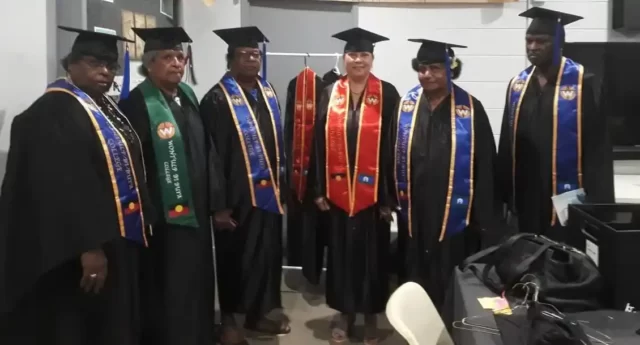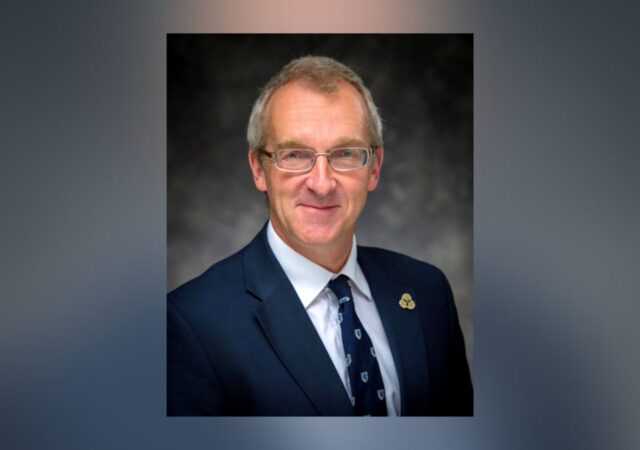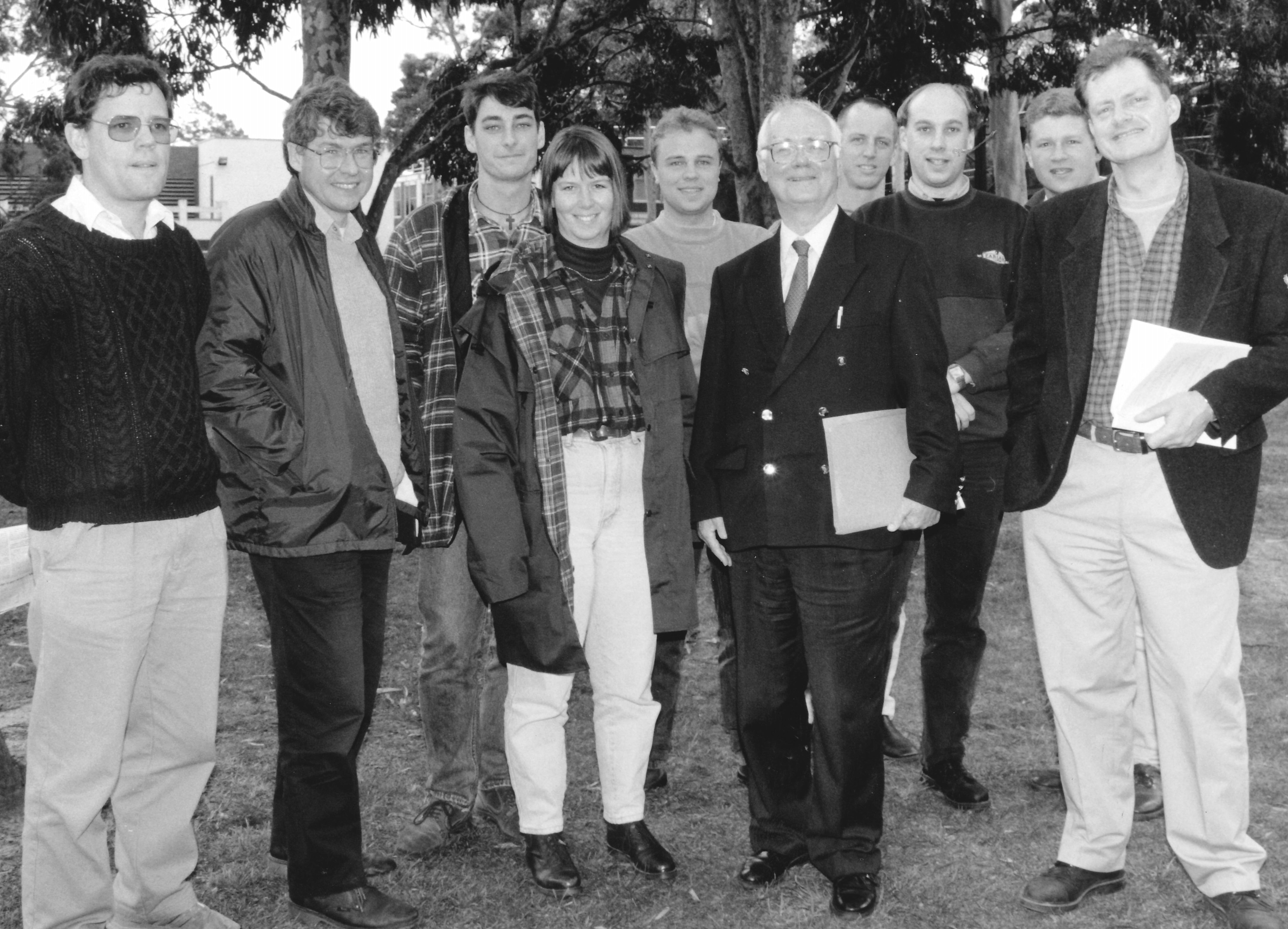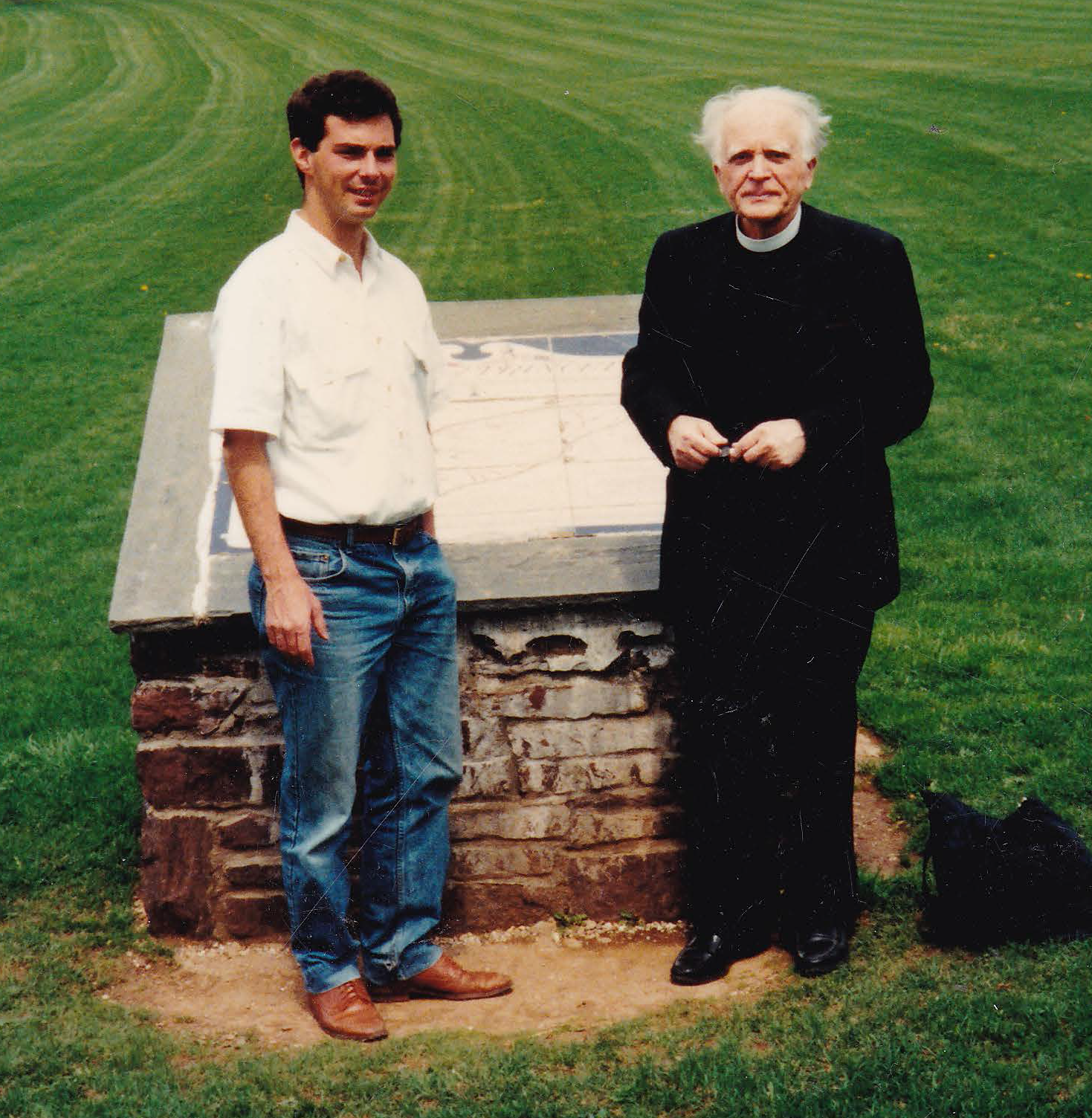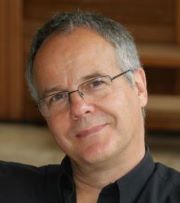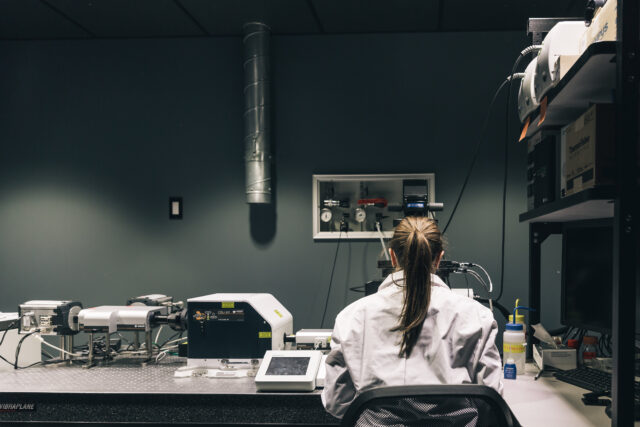
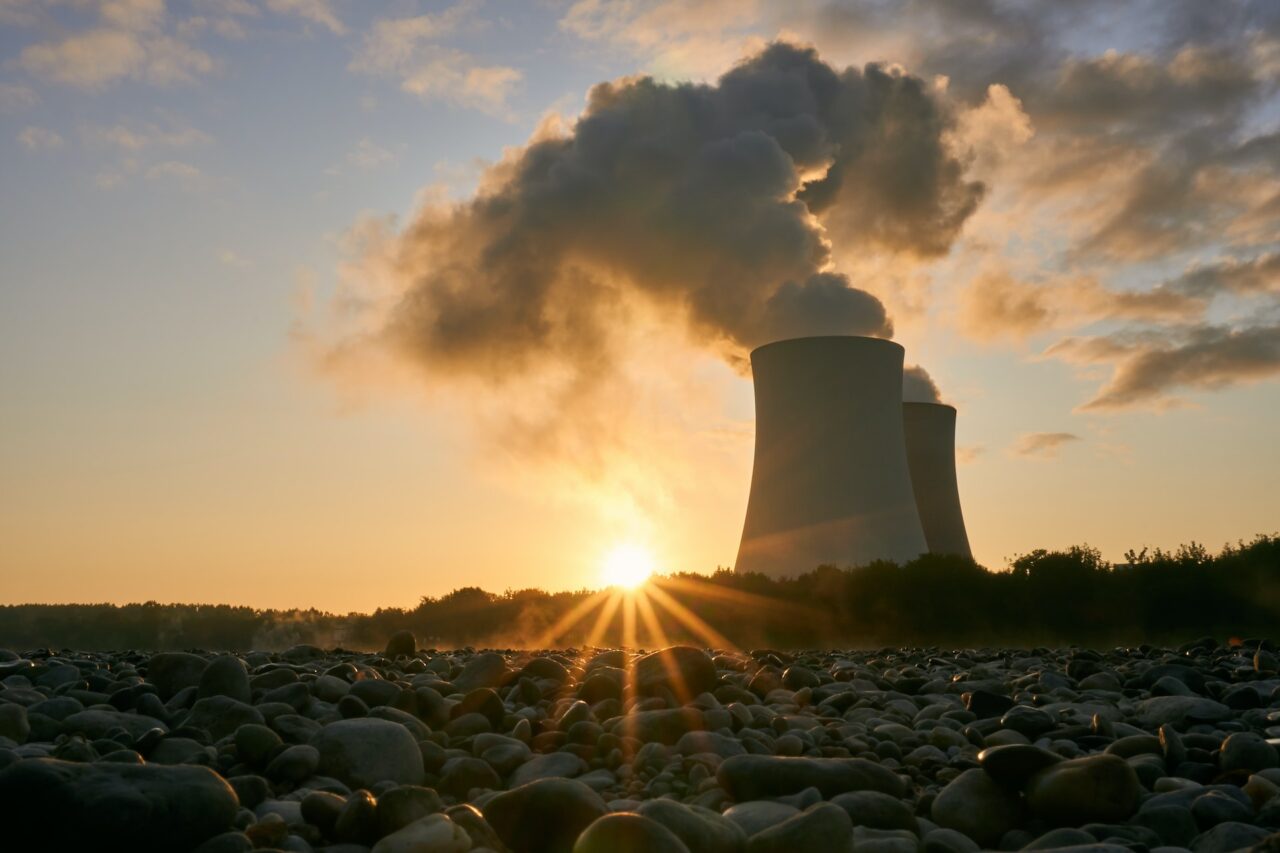
Ian Hore-Lacy
Biography
Ian is Senior Research Analyst with the World Nuclear Association, an international trade association based in London. His function is primarily focused on public information on nuclear power online, where some 200 papers are kept up to date. He is author of Nuclear Electricity, the eleventh edition of which was published in 2018 by the World Nuclear University as Nuclear Energy in the 21st Century. A Chinese edition has been published.
This ResearchGate bio fails to do full justice to all that Ian means to ISCAST. He is a friend with whom you can seriously disagree without rancour, a mentor, a strategist, and a loyal ISCASTian. A search of the ISCAST website shows how often he has thoughtfully contributed to the conversation between the sciences (mainly the environmental sciences) and the Christian faith. His love for the abundance of God’s creation can be seen in this essay.
My succession of workplaces have all been exciting in relation to my Christian worldview and values. In each I have strongly felt that I was cooperating with God’s purposes for humanity, and more recently I would talk about that in terms of advancing God’s Kingdom on Earth (thanks to insights from Tom Wright) to benefit people and work towards renewal of creation. If humans are the pinnacle of God’s creation then feeding, housing and serving all their physical needs has to be seen as worthwhile. And if the Earth is God’s creation more broadly, then the means of addressing human needs should not degrade it. Hence, I have always seen my employers as instruments of God’s grace in a fallen world, albeit imperfect and unwitting ones, on account of what they do.
As well as this instrumental and utilitarian aspect, in the last couple of decades I have engaged with detailed aspects of God’s creation revealed through science and usable through technology only available in the last 80 years or so. Both the fact and the timing of this are providential in human affairs.
In six years of youth work and campus ministry after my Hons year the perspective on God’s kingdom being worked out was obvious. Then in three years teaching at secondary school coupled with running a boarding house I was very conscious of my limitations, but again some fruits could be seen in young lives. My coming to faith in the middle of first year at university had transformed my values and turbocharged my next decade in particular with a ministry focus. It has been a joy to return to that ministry focus with young people in the last 20 years or so, helped by my employment circumstances.
My passion with gifted young people in their formative years is to rev up, stimulate, turn on, envision, encourage, link with resources, challenge, love and support whoever I can, focused on a few at a time. The stimulus and enabling is towards developing gifts which are used for the kingdom, not personal comfort, status and success. And to encourage them in practical ways of loving and service. I invest a bit of time, money and (mainly) prayer in this, usually over 2-3 years with each. The last thing I want is any sense of reciprocal obligation. Where money has occasionally been involved it is on the basis of ‘pay it forward’ or accept it as a gift gladly given to take up an opportunity, in effect an investment of God’s money in God’s purposes, just as my time and prayer is such an investment. However of course there is a real joy for me in the relationships which I am careful to keep reasonably at arm’s length and non-intrusive. I do not want to become part of the normal social circle of any young person, their focus should be on peers, not hanging around some old fart!
Arising out of this ministry since 2001 has been an evolving book on the internet: Down to earth Discipleship—some practical aspects of Christian discipleship for unmarried young adults. A former mentee, Will Jones, joined this project as co-author.
In 20 years working with a multinational mining company, initially in an environmental scientist role, I was always motivated and encouraged by the major role this company had in making resources available for human use and doing so with very high standards environmentally and ethically. My interaction with several executive directors who were Christians added to my sense of purpose. God’s provision through the vast mineral resources of the Earth referred to in Deuteronomy 8:9 and Job 28:1-11 require great effort and diverse skills to make available to people. A synergy of economics, technology and management is required, and I had an ongoing sense of excitement being involved in it.
In the 1980s I was involved with a group of Christian, business people discussing economic issues at a time when the Uniting Church HQ was very vocal about redistributing other people’s money and disparaging of wealth creation. Out of this came my small book published commercially by Albatross in 1985: Creating Common Wealth—aspects of public theology in economics, with Foreword by Sir Harold Knight, the former Governor of the Reserve Bank. The book was a ‘Highly Commended’ in 1986 Christian Book of the Year awards, though in retrospect I would characterise it as an essay that got out of control. I was grateful that every one of about ten drafts was critiqued by John Ralph, CEO of the company now known as Rio Tinto and an active Catholic.
During this time, I was also commissioned or at least encouraged to write several other books which expounded environmental and energy matters in the context of my developing understanding of God’s creation and purposes. One of the books, co-authored with Ron Hubery, was Nuclear Electricity – an Australian perspective (see later mention). It stoked my interest in that subject 15 years before it became my main vocation.
After I was retrenched along with 140 others from head office in 1993, I spent a valuable year doing various things including getting up to speed with nuclear energy and co-authoring a book on land management to maximise conservation values: Nature Conservation and Land Use. The message of the book, essentially multiple case studies, was that multiple use enabled land management to be properly funded and hence more effective, whereas locking it up with inadequate management degraded it. It came back to whether God’s provision of land and resources was for people primarily or whether the ‘conservation’ vision should largely exclude direct human influence, which we demonstrated to be counterproductive. That lesson was reinforced strongly by the extensive and intense bushfires over the 2019-2020 summer.
Then I had 25 wonderful years working with uranium mining companies and the nuclear power industry expounding that option for provision of electricity and more. This has been at a time when nuclear energy is assuming more importance in energy policies worldwide due to its basic economics coupled with energy security concerns and the priority of reducing carbon dioxide emissions from electricity production. Having this mature technology (with over 18,000 reactor-years of civil operation in 32 countries) available at this particular time can be considered indicative of God’s providence in the sense of liberality of provision for human needs.
Apart from the cornucopia of almost limitless energy for human benefit, I gained a sense of worship from the actual physics – another parameter to the anthropic principle aka fine tuning of the universe! The physics of nuclear fission enable control of reactions in both moderated and fast neutron configurations, which means that we have widespread controlled use of nuclear power for electricity, medicine and much else. My 2011 paper for Science and Christian Belief (S & CB, 23, 159–176) contended that Christian stewardship of God’s creation in applying its bounty to human needs appropriately involves utilising nuclear power more widely, among many other things.
Nuclear power as harnessed today has several features which make it very valuable for these times. Fission of certain heavy nuclei produces an extremely concentrated form of energy, which is controllable, and the control of it is inherent in the physics. As its mysteries unfolded in the middle of the last century it was evident that the very high energy density possible with nuclear power meant that safety had to be a prime requirement of engineering. But that engineering had some important God-given physical aspects of fission to work with.
A remarkable feature of nuclear energy, suggesting that it is given for a benign purpose, is the delayed neutron release from fission, enabling control of reactors. While most of the energy released is due to the kinetic energy of the fission fragments, some is from the two or three neutrons released in each nuclear fission. Some of these are immediate (so-called prompt neutrons), but a small proportion (0.7% for U-235, 0.2% for Pu-239) is delayed, associated with the radioactive decay of certain fission products. The longest delayed neutron group has a half-life of about 56 seconds. The delayed neutron release is a crucial factor enabling a chain-reacting system (reactor) to be controllable and able to be held precisely critical. At criticality the chain-reacting system is exactly in balance, such that the number of neutrons produced in fissions remains constant (one neutron from each fission causing one more fission). Without this extraordinary delayed neutron feature, nuclear fission would be good for little more than bombs.
Nuclear power and uranium are every bit as much God-given as renewable sources and fossil fuels, though Christians have been less than outspoken on this. Perhaps God is speaking through others: the 2010 version of Kazatomprom’s1 corporate brochure is titled Energy of Creation! God’s creation is repeatedly said to be ‘good’ in the Genesis 1 creation account, and in the OT ‘good’ is pre-eminently an attribute of God2. It implies an inherent or intrinsic value which does not require any useful dimension or purpose, but I believe that this establishes an obligation for us to respect it and consider how God wants us to use it. The final part of creation, and completing it, is humankind – created from the earth (or Earth) in God’s own image and made responsible in terms of Genesis 1:26f, as steward reflecting God’s character and concerns. It means that a utilitarian dimension of stewardship to serve the needs of people must be taken seriously as an expression of both God’s love and his purpose.
My 2011 S&CB paper addresses all the usual negative views regarding nuclear power by those unfamiliar with it: safety, wastes, radiation, weapons proliferation, etc. Certainly, as the most energy-dense source of power harnessed on Earth for human use, careful engineering and management is required, but the last 60 years have demonstrated that this is well within human capability in well over 600 power reactors for electricity, perhaps 400 for powering ships and over 820 research reactors as neutron sources for science and industry. These represent about 18,500, over 12,000, and over 20,000 reactor-years of operation respectively. (Current operational numbers are about 450, 180 and 250 respectively.)
The ‘providence of God’ in Christian writing and theology is normally applied to the understanding of God’s sustaining and directing his creation, rather than drawing attention to the purpose and liberality of his provision, which is what excites me. Applying the resources of the Earth to human need for an ever-increasing population is a clear human priority – one implicit in the mandate to ‘go forth and multiply’. The technology for this application is based on the science which gives us an insight into the working of God’s creation. Both the science and the technology are derivative from his creation – the world with its natural resources and humankind with our inbuilt intellectual resources.
The Bible is written with pastoral and agricultural rather than industrial imagery, though the Bronze and Iron Ages framed much of it. A major transition from nomadic life is consolidated in the entry to Canaan when the people were reassured that there they would lack nothing, and more specifically that it was ‘a land where the rocks are iron and you can dig copper out of the hills.3‘ This implies the technology to smelt them and turn them into tools and weapons, and in fact copper smelting had probably developed before this time in that part of the world. We now know that uranium was also provided there, but it needed a few millennia before tamed neutrons could make it a meaningful resource. The point is that mineral resources for human use were provided in creation, and continue to be made available today as a result of the increasing technological aptitude with which humans were created. Our stewardship of these, and particularly of fossil fuels, has become a major public policy issue of huge importance, requiring competent and wise Christian input both scientifically and technologically.
In relation to the genesis of nuclear technology at the end of World War II, we can be thankful for the fact that a lot of military high-enriched uranium (mined in the 1950-60s) has come out of weapons stockpiles for use in civil power programs to generate electricity. Half of the uranium used in the USA over 1993-2013 was from Russian nuclear weapons demobilised following the Cold War! The first military plutonium is now being used similarly. There is an echo here of Ezekiel 39: 9-10, where the people of God use the figurative enemy’s weapons of war as fuel after God acts to remove the military threat: ‘For seven years they will use them for fuel. They will not need to gather wood … because they will use the weapons for fuel’.
My nuclear power role over that 25 years evolved from running the Uranium Information Centre in Melbourne and took me to London for a lot of the time over 2001-2012. This was difficult on the family front, but positive in driving me back into an increased ministry role among young unmarried people connected with All Souls church in London. That has continued so that my principal Christian ministry now is mentoring people in their early 20s. This is an outcome of the dislocation due to the need to spend time in London at the World Nuclear Association office.
It also focused my thinking on God’s provision for people and the malign influence of much environmentalism which both misrepresented God’s liberality and opposed his great gift of abundant energy from nuclear power while exaggerating the virtues of renewable technologies such as wind and solar PV. This led to my writing a 55,000-word book which was published by Regent College Press as Responsible Dominion – a Christian approach to sustainable development (Regent College Press 2006). A second edition with enhanced theological chapter was published in 2015 (kindle only). The book makes and documents the unfashionable point that God’s provision for human flourishing is abundant and effectively limitless, but we are not always very good at playing our part in making it so for all the world’s people.
The point is not universally supported in Christian circles where some basic perspectives seem to be overlooked. Human population has increased fourfold – from 1.6 to over 7.0 billion people over the course of the last century, while on average we are each four times better off4. This has been enabled by increased food production, the availability of cheap energy – giving a 13-fold increase in energy use, and the ready availability of fresh water to population centres. At the same time, we have changed the surface of the planet more than ever before, mainly through agriculture. We have also caused massive pollution in many parts of the world but have responded to this heroically and reversed much of it5, though a lot remains to be done.
Some churlish attitudes to God’s provision, including a few Christians, are based on a fundamental misunderstanding of published mineral resources figures, some arise from antipathy to the economic system exploiting them, some simply from Romantic ideology (dressed up as theology in the church). They mean that activist campaigns in some cases lose sight of human need, and they can and do drive the political process (via public opinion) in wasteful or very harmful directions through sustained fear-laden misinformation. Genetically-modified foods, vaccination, nuclear energy and ionizing radiation are examples.6 On the basis of both science and my Christian faith I am committed to countering such ideology. And though I support the scientific basis of concern about climate change, I am appalled by the way it has been conscripted politically for measures which are costly, and which will be largely ineffective.
In April 2015 a significant counter to the widely accepted views of contemporary environmentalism was published over the names of 18 individuals known for their environmental stance and writings. “We call ourselves ecopragmatists and ecomodernists.” “As scholars, scientists, campaigners, and citizens, we write with the conviction that knowledge and technology, applied with wisdom, might allow for a good, or even great, Anthropocene …. [where] humans use their growing social, economic, and technological powers to make life better for people, stabilize the climate, and protect the natural world.” An Ecomodernist Manifesto www.ecomodernism.org is a full-on environmentalist statement which is congruent with a Christian worldview and understanding of God’s creation. It is positive, science-based, technologically upbeat, realistic in facing up to the expectations of 7+ billion people, and not over the top. I strongly support it!
Addressing climate change concerns, it says “Transitioning to a world powered by zero-carbon energy sources will require energy technologies that are power dense and capable of scaling to many tens of terawatts to power a growing human economy.” Since intermittent sources of renewable energy don’t fill the bill, due to rapidly escalating system costs as their proportion increases, “Nuclear fission today represents the only present-day zero-carbon technology with the demonstrated ability to meet most, if not all, of the energy demands of a modern economy.”
Focusing on my role with nuclear energy, over the 40 years from the first edition of Nuclear Electricity, a succession of new editions appeared, culminating in the 11th edition in 2018, now as Nuclear Energy in 21st Century, published by the World Nuclear University. This has been a very satisfactory spin-off from my main work in the nuclear industry, researching and writing to furbish a web site for the World Nuclear Association which garners some 12,000 hits per day and designed to cover everything that anyone might want to know about nuclear power or other nuclear applications, for the layman. Though it is not an overtly Christian book it aims to give a fair, balanced and objective account of the technology, and in God’s (and Sir Roderick Carnegie’s) providence the co-author of early editions was an evangelical Christian who actually knew something about the subject at a stage when I didn’t.
It is a tremendous privilege to have had a small though active involvement in the productive economy, focused on helping to make available the abundant provision that God has built into his creation, including applying the intellectual resources of people through science and technology.
Appendix: Personal aims and objectives from About 20 years ago
- Promote fuller understanding and appreciation of God’s abundant provision particularly through nuclear energy so as better to meet world energy needs cleanly and conserve fossil fuels, (while also using renewable energy sources).
- Counter Green Romanticism and harness environmental, social and political energy to genuine human good (including in the church, where Green Romanticism is dressed up as theology).
- Encourage Christians to have a more wholesome and positive view of God’s creation and the bounty of it accessible through technology.
- Encourage Christian engagement with the institutional arrangements in the third world which pertain to property rights, employment, enforcement of contracts, legally secure investment, affordable borrowing, taxation, accessible justice and other hindrances to indigenous wealth creation.
- Write up role models of Christians active in mediating and/or liberating the abundance of God’s creation in alleviating poverty and making resources available.
ENDNOTES FOR HORE-LACY
1Kazatomprom is the state-owned entity responsible for Kazakhstan’s uranium mining. The country is the world’s largest producer of uranium, accounting for a third of world population.
2 cf Mark 10:18
3 Deuteronomy 8:9
4 measured by average per capita Gross Domestic Product
5 JR. McNeill 2001, Something New Under the Sun: an Environmental History of the Twentieth-Century World, provides an excellent environmental overview.
6 Following the 2011 Fukushima accident in Japan, which killed no-one, the government prolonging the evacuation beyond a few days due to unjustified concern about radiation exposure from early fallout led to almost 3,000 deaths due to stress and disruption of medical support, mostly of older people, according to government figures. (There is in fact now mounting evidence that low doses of radiation – below 50 units – mSv – has beneficial effects.) The tsunami which caused the accident killed some 19,000 people.
